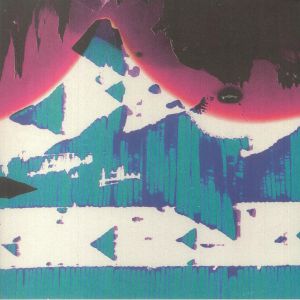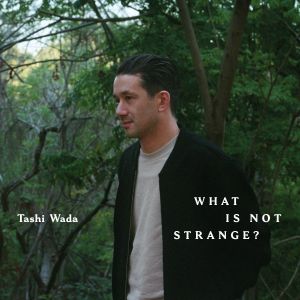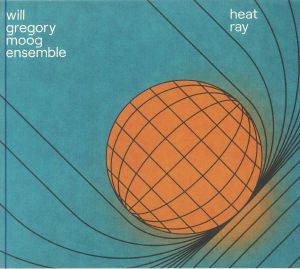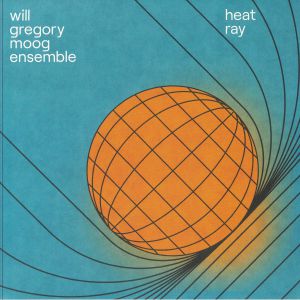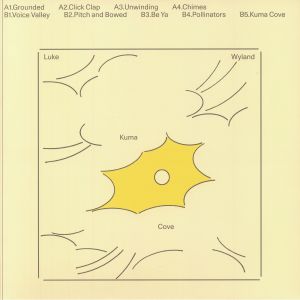Filter
Stock
Music
Artist
Featured
Release Title
Price
Back catalogue: Classical
Juno's full catalogue of Classical
Alben
In The Cell Of Dreams (gatefold LP)
Cat: 7K 047LP. Rel: 29 Sep 23
Review: Shackleton and Waclaw Zimpel's first album Primal Forms was a masterful collaboration which arrived on Cosmo Rhythmatic in 2020. The pair clearly found fruit in their crossover as they return for a second instalment, this time on 7K! and with an expanded approach thanks to the addition of Siddhartha Belmannu, a strikingly talented young singer in the field of Indian classical music. The over-arching intention of the artists was to make a joyous album about the wonder of life and living, but of course this isn't a one-dimensional happy-clappy record. Rather, it's a meditative exercise dealing in fascinating microtonality and mesmerising harmonic interplay with the power to have a profound, uncanny effect on the listener.
… Read moreGespielt von: Alexis Le-Tan
in stock $24.88
Review: Los Angeles-based composer Tashi Wada steps out with his long awaited debut album, What Is Not Strange?, and a fine first solo outing it is too. It is by far his most ambitious and widescreen work to date and it comes laden with plenty of emotion as a result of the fact that it was written and recorded over a period that encompassed the death of his father and the rather opposite feelings of experiencing the birth of his daughter. As such Wada reflects inward to explore various themes including being alive, mortality and finding one's place in the world. His unique song based expressionism goes from ecstatic to denser forms and starker contrasts. It is a wonderful experiment and immersive listen.
… Read more in stock $41.74
Review: "One might thus regard the Welsh rarebit as a Machine in which a process is applied to the conditioning and perception of the world of bread and cheese." Suffice to say, John White might not have had the same ideas about what constitutes Machine Music back in 1976 as you do today. This is also the first time we've ever managed to get a reference to Welsh rarebit into the first line of writing about a record, so everyone is learning something today. "The Machines" White refers to are the individual tracks themselves, all recorded between 1967 and 1972 and all comprising different combinations of a thing. Six pairs of "bass melody instruments" made 'Autumn Countdown Machine', different permutations of "the articulations 'ging, gang, gong, gung, ho!'" comprise 'Jews Harp Machine'. And 'Son of Gothic Chord' is crafted from the sequential chord progression of four keyboard players, spanning an octave. Conceptual experimental and wildly imaginative stuff on the borderline of electronica, abstract, mathematical and something otherworldly.
… Read more in stock $29.03
Review: The Will Gregory Moog Ensemble's debut album, Heat Ray, is a riveting exploration inspired by the ancient Greek mathematician Archimedes. Recorded on analogue synthesizers alongside the BBC National Orchestra of Wales, the ensemble - led by Goldfrapp co-creator Will Gregory - brings together up to 14 talented players, including Portishead's Adrian Utley and Mute's Daniel Miller. Heat Ray fuses spirals of melody, circular structures, and intricate patterns, drawing inspiration from Archimedes' mathematical principles. The album's genesis during pandemic lockdowns reflects Gregory's deep dive into Archimedes' life, sparked by online lectures. With a lineup boasting instruments like the Minimoog and Prophet 6, the ensemble weaves a stunning superstructure of sounds, guided by Gregory's effervescent spirit of discovery. The result is a splendid blend of ancient history and modern innovation, where musical exploration converges with mathematical curiosity. Heat Ray not only pays homage to Archimedes' legacy but also propels listeners towards an endlessly fascinating future.
… Read moreGespielt von: Juno Recommends Experimental
in stock $11.89
Review: The Will Gregory Moog Ensemble's debut album, Heat Ray, is a riveting exploration inspired by the ancient Greek mathematician Archimedes. Recorded on analogue synthesizers alongside the BBC National Orchestra of Wales, the ensemble - led by Goldfrapp co-creator Will Gregory - brings together up to 14 talented players, including Portishead's Adrian Utley and Mute's Daniel Miller. Heat Ray fuses spirals of melody, circular structures, and intricate patterns, drawing inspiration from Archimedes' mathematical principles. The album's genesis during pandemic lockdowns reflects Gregory's deep dive into Archimedes' life, sparked by online lectures. With a lineup boasting instruments like the Minimoog and Prophet 6, the ensemble weaves a stunning superstructure of sounds, guided by Gregory's effervescent spirit of discovery. The result is a splendid blend of ancient history and modern innovation, where musical exploration converges with mathematical curiosity. Heat Ray not only pays homage to Archimedes' legacy but also propels listeners towards an endlessly fascinating future.
… Read moreGespielt von: Juno Recommends Leftfield, Juno Recommends Experimental
in stock $24.88
Review: Portland's Luke Wyland is back with a deeply personal album exploring themes of flow, identity and self-expression. Named after a coastal Oregon location, it transcends its physical origin. Recorded live and blending computer-based composition with electro-acoustic instruments, the album features discontinuous ripples and repetitions that create emotive arcs that challenge the usual linearity of music. Wyland reflects on the complexities of self-expression throughout while offering an intricate soundscape that mirrors the unpredictable movement of water. Kuma Cove is a fine trip through transitory states and energies.
… Read more in stock $22.10

 USD
USD





